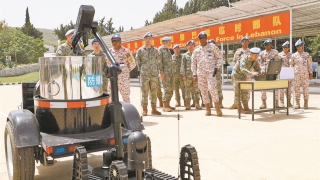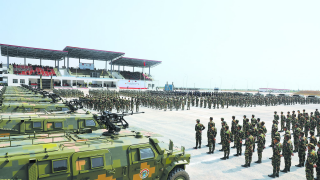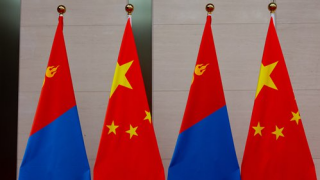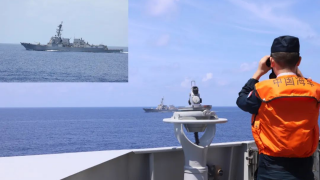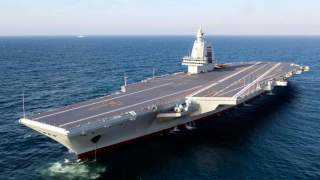By Dai Fan
It is reported that the US has started advising the Philippines on the repair of the illegally-grounded warship at Ren'ai Jiao in the South China Sea. This news is surprising, as the Philippines' provocations in the South China Sea and the US's overt intervention in the South China Sea issue have reached such a blatant level.
In 1995, a conflict erupted between the Philippines and China at Meiji Jiao, and the situation in the South China Sea heated up. Since then, China and the ASEAN countries have held consultations on how to manage the risk of conflict in the South China Sea and peacefully resolve differences and disputes. They issued a joint statement in 1997 which committed to resolving differences or disputes through peaceful means without resorting to the use or threat of force. It also emphasized the parties' agreement to exercise self-restraint and handle disputes in a calm and constructive manner. However, on May 9, 1999, the day after the NATO bombing of the Chinese Embassy in Yugoslavia, the Philippine Navy's tank landing ship BRP Sierra Madre illegally ran aground at Ren'ai Jiao on the pretext of so-called mechanical problem. Under the negotiations and protests from the Chinese side, the Philippines explicitly stated that they would tow away the stranded ship and would not become the first country to violate the Declaration on the Conduct of Parties in the South China Sea. Contrary to these commitments, subsequent events revealed that the Philippines repeatedly breached its promises. Not only did they fail to tow away the grounded ship, but they also attempted to reinforce facilities to continue occupying Chinese reefs and islands. In March 2014, the Philippine Department of Foreign Affairs openly declared that the vessel they claimed had run aground in 1999 was, in fact, an occupation of the Ren'ai Jiao.
The Philippines has repeatedly engaged in provocations in the vicinity of Ren'ai Jiao since 2023. According to Japanese media reports, the US and the Philippines are currently assessing how long the Sierra Madre can be sustained without undergoing repairs. The US may even help the Philippines during the repair process, such as material transport and security support. The US' intervenes in the South China Sea issue under the pretext of so-called freedom of navigation, claiming to jointly uphold the rule-based international order with its allies, while accusing China of violating rules. However, the US turns a blind eye to the blatant violation of rules by the Philippines' illegal aground of a military vessel, and even attempts to assist the Philippines in solidifying its illegal occupation. From any perspective, these facts demonstrate that the US is destabilizing the situation in the South China Sea and is adding fuel to an already tense situation.
The US has increasingly shown a disregard for restraint in its stance on the South China Sea, driven by shifts in its Asia-Pacific and, more specifically, its China policy over the past few years. After Barack Obama took office, the US has not only gradually abandoned its neutral stance on the South China Sea issue but has also moved from the background to the forefront, providing assistance to claimant countries in the South China Sea to enhance their capabilities in countering China. Washington has significantly increased its support for Manila's illegal provocations in the South China Sea since the Ferdinand Romualdez Marcos Jr. administration came to power in the Philippines. As is known to all, the reason why the US came all the way to the South China Sea to create disturbances is to establish regional rules that serve its own hegemony. Southeast Asian countries should be aware that China has long supported the central role of ASEAN in the regional framework, committed to maintaining peace and stability in the South China Sea. Hence, China has consistently adopted a highly tolerant attitude towards the provocations of some individual countries. However, countries like the Philippines, who persistently uses the illegal aground vessel in the South China Sea to stir up trouble, should be clear that China's tolerance is not unlimited.
(The author is the Vice Dean of the School of International Relations and Director of the Center for Philippine Studies at Jinan University)
Editor's note: Originally published on huanqiu.com, this article is translated from Chinese into English and edited by the China Military Online. The information and opinions in this article do not necessarily reflect the views of eng.chinamil.com.cn.

